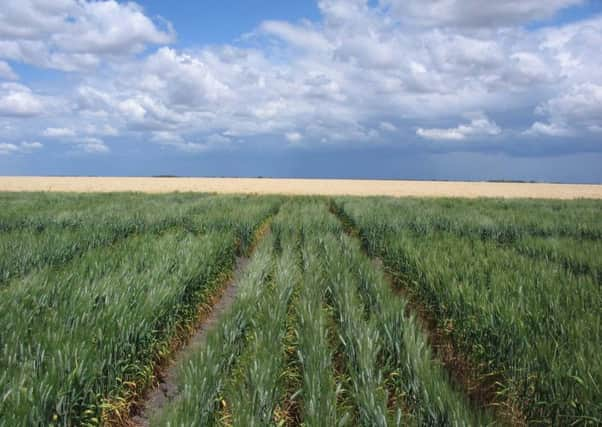Comment: Why growth need not be a dirty word


To some, the idea of increasing food production and ‘growing’ the agricultural industry is one to be rejected. It’s argued that if we all ate a bit less, cut down on food waste and ate more fruit and veg, and a bit less meat, there would be enough food to go around at current levels of production. But to me, growth is not a dirty word. Achieved in the right way, it’s the responsible approach to the population challenges we face.
By the mid-2040s the UK is expected to be the most populous country in the EU with around 77 million mouths to feed. And today we are only producing 60 per cent of the food we need – the rest is imported.
Advertisement
Hide AdAdvertisement
Hide AdChanging people’s eating and lifestyle habits is no mean feat so to me it’s obvious that we have to get ourselves in the position where we are producing more; that has to be more sensible and sustainable in the long term than embarking on a risky policy reliant on food imports.
But just as changing people’s diets is challenging, so too is stepping up our food production.
If you look at global agricultural productivity the US is leaving us and most of Europe in its wake. UK farmers have become more efficient in the use of inputs (for example seed, sprays, fertiliser, diesel) – reducing use by around 20 per cent since the mid 90s – but recent decades have brought only a marginal increase in output.
Given our climate, quality of our soils and so on, you have to wonder why we are performing so poorly in this regard. An obvious issue is lack of investment in agricultural research and development, with public funding slashed by 30 per cent between 2002 and 2010 and private agro-chemical companies focusing on global markets more accessible than those in the EU.
Advertisement
Hide AdAdvertisement
Hide AdThe fact is that productivity matters: if you’re able to produce more from the same levels of inputs, that creates a margin that allows farmers to re-invest in their businesses, whether that’s in new crops, animal genetics, machinery or buildings. It is not the enemy of the environment either, as it ensures inputs are used more efficiently to deliver the optimum output.
It follows that the more efficient a farm becomes, the more competitive and resilient it is; something that’s so important given the increasing volatility of world commodity markets.
For these reasons, the National Farmers’ Union is making the case for a resilient growing sector in the run up to the election. We want an industry that’s able to invest for the future with confidence working in partnership with the government to develop an agri-food strategy covering every link in the food chain.
We know that 85 per cent of the British public wants more home produced food on supermarket shelves and we want to help deliver that. To do so though, everyone needs to pull together to kickstart our productivity.
Ian Backhouse farms at Reedness near Goole and is a member of the NFU North East Crops Board.